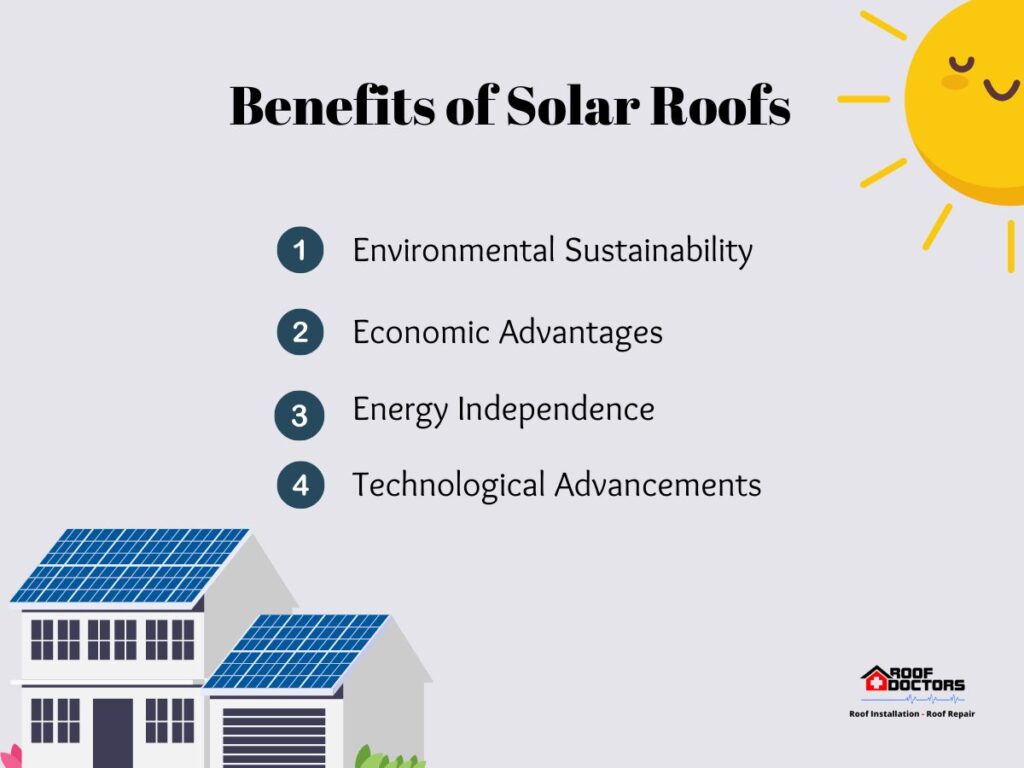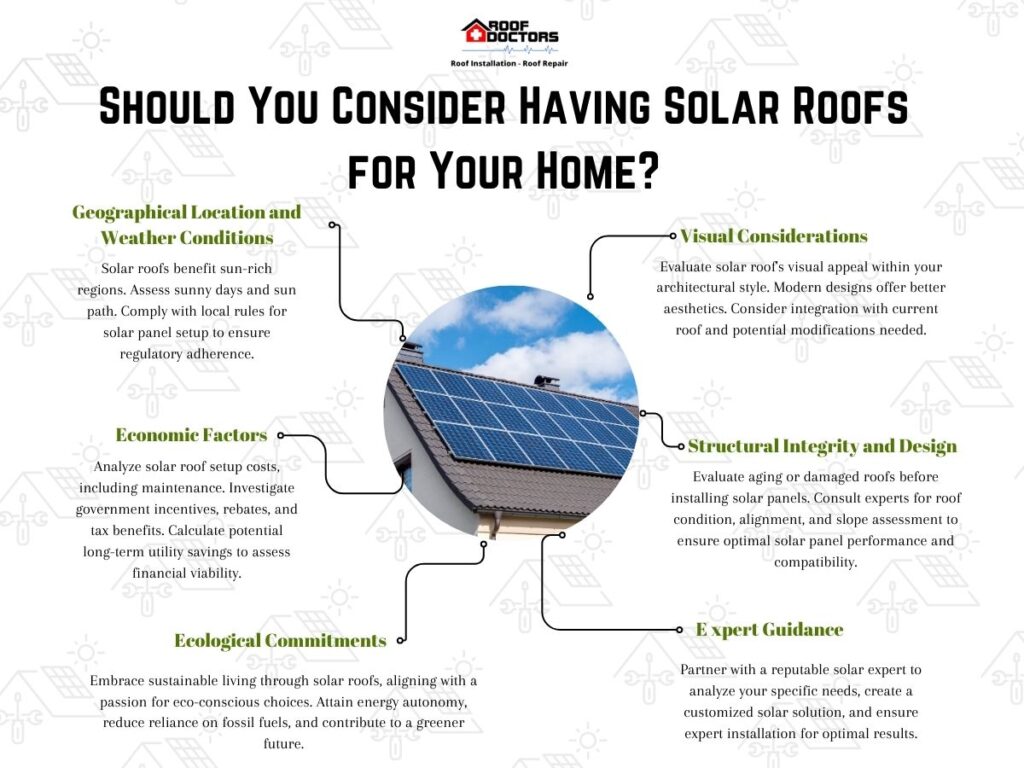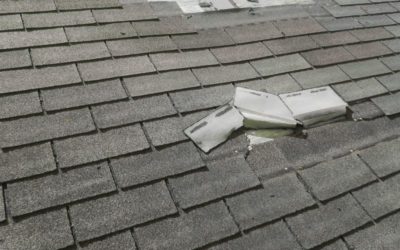There are quite a number of benefits and drawbacks of solar roofs. Solar roofs, also known as photovoltaic (PV) roofs, have become a symbol of the modern sustainable energy movement. They are designed to harness the sun’s energy and convert it into electricity, providing a renewable energy source for homes and businesses.
This article explores the benefits and drawbacks of solar roofs, offering insights into their efficiency, cost, environmental impact, and more. Let’s start!
The Benefits of Solar Roofs

Solar roofs, a cutting-edge technology that integrates solar panels into roofing materials, have become increasingly popular in recent years. They represent a significant step towards a sustainable future by harnessing the sun’s energy to generate electricity.
Below, we explore the numerous benefits of solar roofs, from environmental sustainability to economic advantages.
1. Environmental Sustainability
- Reduction in Greenhouse Gas Emissions: Solar roofs generate electricity without emitting harmful greenhouse gases, reducing global warming.
- Renewable Energy Source: Unlike fossil fuels, solar energy is inexhaustible and renewable, making it a sustainable choice for the long term.
2. Economic Advantages
- Lower Energy Bills: By generating your own electricity, solar roofs can significantly reduce or even eliminate your energy bills.
- Government Incentives: Many governments offer incentives and rebates for solar roof installation, making it more affordable.
- Increased Property Value: Homes with solar roofs often have higher resale values due to their energy efficiency and modern appeal.
3. Energy Independence
- Reduced Dependence on Grid: Solar roofs allow homeowners to generate their own electricity, reducing dependence on the conventional power grid.
- Energy Storage Options: With battery storage, solar roofs can provide power even during nighttime or cloudy days, enhancing energy independence.
4. Technological Advancements
- Integration with Smart Homes: Modern solar roofs can be integrated with smart home systems, allowing for more efficient energy management.
- Innovative Designs: Solar roofs are now available in various aesthetically pleasing designs, blending seamlessly with traditional roofing materials.
The Drawbacks of Solar Roofs
While solar roofs offer numerous benefits, including environmental sustainability and economic savings, they have challenges and drawbacks. Understanding these potential downsides is essential for anyone considering investing in solar roof technology. Below, we explore the various drawbacks of solar roofs.

1. High Initial Costs
- Installation and Equipment: The initial cost of purchasing and installing a solar roof can be substantial, although this is often offset by long-term savings and incentives.
- Maintenance Costs: Regular maintenance is required to keep the system running efficiently, adding to the overall cost.
2. Efficiency Concerns
- Weather Dependency: Solar roofs are less efficient in cloudy or rainy conditions, which can affect energy production.
- Location Factors: The efficiency of a solar roof depends on its geographical location, orientation, and angle, limiting its effectiveness in some areas.
3. Aesthetic Considerations
- Appearance: Some homeowners may find the appearance of solar panels unappealing, although newer designs are addressing this concern.
- Integration with Existing Roofs: Integrating solar panels with existing roofs can be challenging, especially with older or unconventional roof designs.
4. Environmental and Ethical Concerns
- Manufacturing Impact: The production of solar panels involves mining and processing raw materials, which can have environmental impacts.
- End-of-Life Disposal: Recycling and disposing of solar panels at the end of their life cycle can be challenging and may contribute to waste.
Should You Consider Having Solar Roofs for Your Home?
Solar roofs are emerging as a compelling option for homeowners eager to cut down on energy expenses, play a part in environmental conservation, and adopt cutting-edge technology. But does this option align with your specific needs and circumstances?
Here are some essential aspects to ponder when contemplating the investment in solar roofs for your residence.

1. Geographical Location and Weather Conditions
- Sun Exposure: Solar roofs might be advantageous if your home is situated in a region with plentiful sunshine. Analyze the typical number of sunny days and the sun’s trajectory in your area.
- Regulatory Compliance: Familiarize yourself with local ordinances and zoning regulations concerning solar panel installation to ensure adherence.
2. Economic Factors
- Upfront Expenditure: Scrutinize the initial expenses involved in procuring and setting up solar roofs and potential upkeep costs.
- Government Support: Explore the possibilities of incentives, rebates, and tax deductions that might alleviate the initial financial burden.
- Long-term Economic Benefits: Estimate the prospective long-term savings on utility bills to gauge whether the investment aligns with your financial planning.
3. Ecological Commitments
- Sustainable Living Goals: If you are passionate about minimizing your ecological impact and fostering sustainability, solar roofs could resonate with your principles.
- Autonomy from Traditional Energy Sources: Reflect on whether gaining independence from conventional energy sources and diminishing reliance on fossil fuels aligns with your objectives.
4. Visual Considerations
- Aesthetic Appeal: Assess the visual aspects of solar roofs to determine if they complement your architectural preferences. Contemporary designs provide more aesthetically pleasing alternatives.
- Compatibility with Existing Roof Structure: Contemplate how solar panels will amalgamate with your current roof configuration and whether alterations are requisite.
5. Structural Integrity and Design
- Roof’s Age and State: If your roof is aging or in disrepair, it may necessitate refurbishment or replacement prior to solar panel installation. Seek professional evaluation of your roof’s condition.
- Roof Alignment and Slope: The direction and inclination of your roof influence the efficacy of solar panels. Engage a solar expert to ascertain compatibility.
6. Expert Guidance
- Professional Evaluation: Collaborate with a credible solar specialist to scrutinize your unique situation, devise a tailored solution, and guarantee proficient installation.
Opting for solar roofs is a complex decision that demands a meticulous examination of geographical, financial, environmental, aesthetic, structural, and professional factors. Investing in solar roofs must resonate with your requirements, ethical beliefs, and long-term aspirations.
By assiduously assessing the aspects above and soliciting expert advice, you can make a reasonable decision that augments your home’s energy proficiency, harmonizes with your values, and fosters a greener tomorrow.
Final Thoughts

Solar roofs represent a significant advancement in renewable energy technology, offering many benefits, including environmental sustainability, economic savings, energy independence, and technological innovation.
However, potential adopters must also consider the drawbacks, such as high initial costs, efficiency concerns, aesthetic considerations, and environmental and ethical issues.
The decision to invest in a solar roof should be made after considering individual needs, location, budget, and long-term goals. With continued advancements in technology and increased awareness of sustainable practices, solar roofs are likely to become an even more attractive option in the future.


